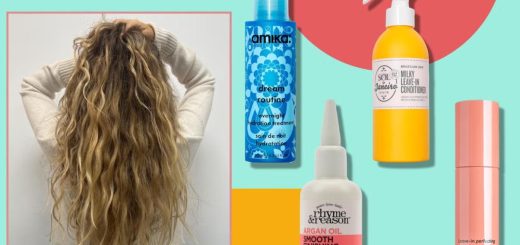Unlocking the Secrets of Scalp Health: Prevention and Solutions for Common Problems
Why Scalp Health Matters
The scalp is a complex ecosystem consisting of hair follicles, oil glands, and skin cells. It is responsible for the growth and nourishment of your hair. When the scalp is healthy, it supports optimal hair growth and maintains a balanced environment for follicles. Conversely, a neglected scalp can lead to various issues, including hair thinning, dandruff, and even hair loss.
Common Scalp Problems and Their Solutions
1. Dandruff
Problem: Dandruff is characterized by white or yellow flakes of dead skin that appear on the scalp and shoulders. It can be accompanied by itching and irritation.
Cause: Dandruff is often caused by an overgrowth of a yeast-like fungus called Malassezia, which can disrupt the natural balance of the scalp. Other factors include dry skin, sensitivity to hair products, or certain skin conditions like eczema.
Solution: To combat dandruff, consider using an anti-dandruff shampoo containing ingredients like zinc pyrithione, selenium sulfide, or ketoconazole. These ingredients help to control the growth of Malassezia and reduce flakiness. Additionally, maintaining a regular washing routine and avoiding harsh shampoos can help manage dandruff. If dandruff persists, consult a dermatologist to rule out other underlying conditions.
2. Dry Scalp
Problem: A dry scalp can lead to itchiness, tightness, and flakiness. It often feels rough and may have a noticeable lack of natural oils.
Cause: Dry scalp can be triggered by environmental factors such as cold weather or low humidity, overuse of hair products, or frequent washing with harsh shampoos that strip away natural oils.
Solution: To alleviate a dry scalp, switch to a moisturizing shampoo and conditioner. Look for products with hydrating ingredients like aloe vera, coconut oil, or glycerin. Additionally, consider using a scalp oil or treatment to replenish lost moisture. Avoid overwashing your hair and opt for lukewarm water instead of hot, which can exacerbate dryness. Incorporating a humidifier into your home can also help maintain moisture levels in the air.
3. Oily Scalp
Problem: An oily scalp is characterized by excess sebum production, leading to greasy hair and potentially causing acne around the hairline.
Cause: Oily scalp conditions are often caused by an overactive sebaceous gland, which can be influenced by hormonal changes, diet, or stress.
Solution: Use a clarifying shampoo to control excess oil and keep the scalp clean. Look for shampoos that contain salicylic acid or tea tree oil, which can help balance oil production. Avoid heavy conditioners and styling products that can contribute to oil buildup. Additionally, washing your hair more frequently may help manage excess oil. For persistent issues, consulting with a dermatologist may be necessary to address potential hormonal imbalances.
4. Scalp Psoriasis
Problem: Scalp psoriasis is a chronic autoimmune condition that leads to red, scaly patches on the scalp. It can be itchy and uncomfortable, and in severe cases, it may extend to the hairline or behind the ears.
Cause: Psoriasis occurs when the immune system accelerates the growth cycle of skin cells, causing them to build up on the surface.
Solution: Treatment for scalp psoriasis often involves medicated shampoos containing coal tar or salicylic acid to reduce scaling. Topical treatments, such as corticosteroids or vitamin D analogs, can also be prescribed by a dermatologist to manage inflammation and itching. Gentle hair care practices and avoiding triggers like stress or certain hair products can help prevent flare-ups.
5. Hair Loss
Problem: Hair loss or thinning can be a distressing issue, affecting both men and women. It may present as general thinning or more localized bald spots.
Cause: Hair loss can result from various factors, including genetics, hormonal changes, nutritional deficiencies, or scalp conditions. Conditions like androgenetic alopecia or telogen effluvium are common causes.
Solution: To address hair loss, consider using shampoos and treatments designed to strengthen hair and stimulate growth. Ingredients like biotin, caffeine, and minoxidil are known to support hair health. Ensuring a balanced diet rich in vitamins and minerals is also crucial for hair growth. In cases of severe hair loss, consult a healthcare professional for personalized treatment options, which may include medications or other therapeutic interventions.
Preventive Measures for a Healthy Scalp
Maintaining a healthy scalp requires consistent care and attention. Here are some preventive measures to keep your scalp in top shape:
- Maintain a Balanced Diet: A diet rich in vitamins, minerals, and essential fatty acids supports scalp health. Incorporate foods high in omega-3 fatty acids, vitamin E, and biotin.
- Avoid Overuse of Hair Products: Excessive use of styling products can lead to buildup and irritation. Opt for natural or minimal products to reduce the risk of scalp issues.
- Practice Good Hygiene: Regularly wash your hair to remove dirt, oil, and product buildup. However, avoid overwashing, which can strip natural oils and disrupt the scalp’s balance.
- Stay Hydrated: Drinking plenty of water helps maintain overall skin health, including that of the scalp.
- Protect from Environmental Stressors: Shield your scalp from harsh weather conditions by wearing hats or using protective hair products.
- Manage Stress: High stress levels can impact scalp health and contribute to problems like hair loss. Incorporate stress-reducing activities into your routine, such as exercise or meditation.
Conclusion
A healthy scalp is the cornerstone of beautiful hair. By understanding and addressing common scalp problems, you can foster an environment that promotes hair growth and maintains overall hair health. From tackling dandruff to managing oiliness, the right approach to scalp care can make a significant difference. Prioritize your scalp health as part of your hair care routine, and enjoy the benefits of a well-nourished and vibrant mane.


















